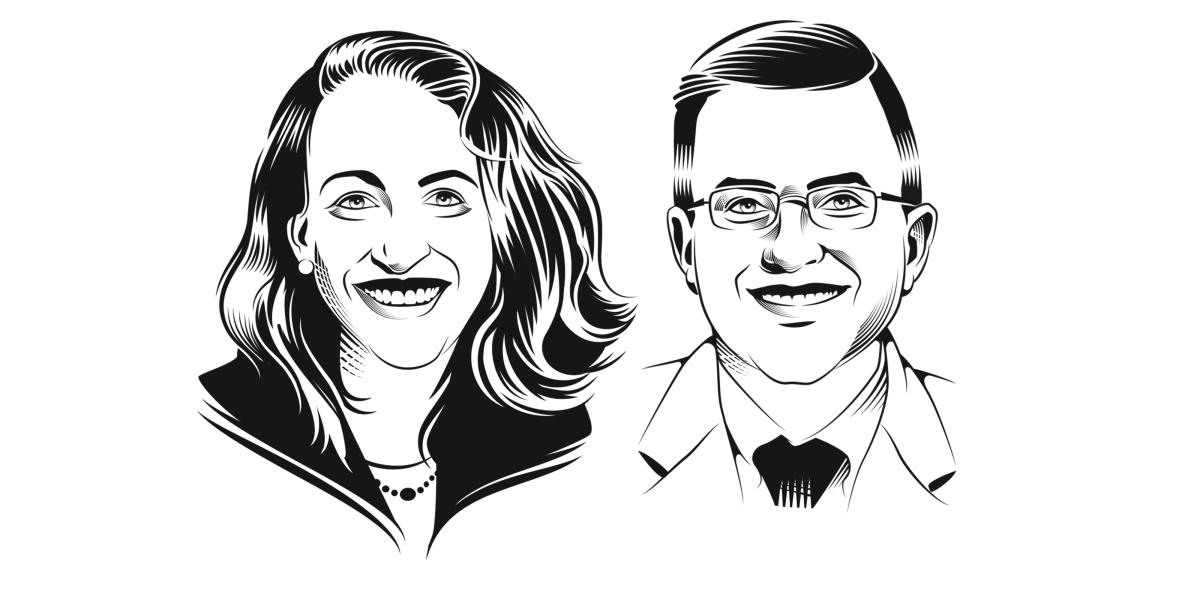The Inner Compass
Retired FDA head Margaret Hamburg and former principal deputy commissioner Joshua Sharfstein reflect on the agency’s evolving global role and the nature of leadership.
Margaret Hamburg, MD, recently completed six years as Commissioner of the U.S. Food and Drug Administration—an organization not often seen as a public health agency. In fact, Hamburg, who also led the New York City health department, says few agencies “have more of a direct impact every single day on the health, well being and quality of life” of people in the U.S. and abroad. In an April interview, Joshua Sharfstein, MD, associate dean for Public Health Practice and Training at the Bloomberg School, talks with his former FDA boss on the agency’s global impact, her leadership style and the secrets of making good decisions under pressure.
JS: A few months after I left the agency in 2011, I wrote that FDA was a misunderstood agency with a very difficult job. How has public understanding of the FDA changed?
MH: Well there’s continuing work to be done, but we have made significant efforts to open the agency up, to become more transparent, to really explain what we do, how we do it and why. I’m happy to report that actually there’s a Gallup poll that’s done every five years of a set of federal agencies, and FDA was the agency that improved the most in terms of public trust and confidence between 2009 and 2013.
JS: You focused a lot of your attention on international issues involving food and medical products. Where does the FDA fit into the broader agenda of global health?
"We really need to think more as a global coalition of regulators, rather than as discrete regulatory authorities."
MH: There are very few products that FDA regulates that are exclusively domestic. Most are coming in whole or in part from other countries, and often following very complex supply chains. We really need to think more as a global coalition of regulators, rather than as discrete regulatory authorities. One of the things that I found myself spending considerable time and effort on was working on how to help build regulatory capacity in developing economies. It’s important both for economic development and to protect the public from unsafe products.
JS: You’ve held two of the most difficult and important jobs of public health in this country, the health commissioner of New York and FDA commissioner.
MH: I hadn’t realized this at the time, but I served six years as New York City’s health commissioner, and six years as FDA’s commissioner, so perhaps that’s my threshold for these jobs. As I reflect back, I also recognize that while I never think of myself as a big risk-taker in life, and my family teases me about being the “reality patrol,” that in fact with both those jobs, I took an enormous risk jumping in, when I really wasn’t at all sure what I was getting into, and whether frankly, I was equipped to provide the leadership needed.
JS: Is anyone equipped for these jobs going in? For those who aspire to follow in your footsteps, how can they prepare for positions where it isn’t so obvious what tomorrow is going to bring?
MH: Most of the important problems that we face are multi-faceted, and the solutions are going to require synthetic approaches, working across many different disciplines, bringing different perspectives to bear, being willing to open your mind and expand your situational awareness as you tackle the problem. Students today need to be learning more academically in a broader array of arenas than ever was the case during my training. But I also think practical real-world experience really matters, because you can read about things in books; you can write about the qualities of leadership, or decision-making, or problem solving; but you need to get your hands dirty as well.
JS: You’re not just saying that because I’m the new Associate Dean for Public Health Practice?
MH: (Laughter) Practice is key.
JS: You are the best I’ve ever seen in making very difficult decisions under incredible pressure and competing demands. I’ve tried to pretend to be you in such situations; I can never quite pull it off.
MH: Well you’re very generous.
JS: What’s your secret? I’ve always wanted to know the answer to that question.
MH: A couple things. One is that I try to be genuine, and open, and sincere. I really do care about hearing other people’s perspectives, and trying to find the right solution based on the best information that I can get. I also do think that the only way to do these kinds of difficult jobs is to have an inner compass that’s based on really using the best science to make decisions, and a core sense of the importance of integrity, and informed public health and medical practice as well. You can start to veer wildly off course if you’re trying to accommodate everybody’s interests or concerns, if you’re trying to make sure that nobody’s mad at you, and if you’re trying to solve multiple political agendas. Our mission was to deliver on the core responsibilities of FDA, and coming back to that, at the end of the day, was what enabled me to navigate some complicated waters.
JS: Well, thank you. I hope that we can bring you to the School to do some teaching because I personally have learned so much from you.
MH: Well that would be terrific. Send me an invitation.
